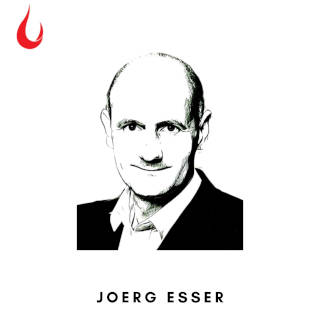[Photo by Naassom Azevedo on Unsplash]
Good morning,
It is widely believed that familiarity breeds contempt. But Margaret Heffernan challenges this notion upfront in her book Willful Blindness: Why We Ignore the Obvious at Our Peril. Instead, she argues that familiarity breeds comfort. To prove her point, she presents multiple cases.
“If you meet Rebecca and Robert together, you will notice what all their friends comment on: they look very alike. Not the same, of course; they’re not twins. They’re husband and wife. And their looks are not deceptive… Not rich, not poor. Went to the same university, both in broadcasting, both Christian. But then there are more nuanced things, like the way we both think about family and friends, and believing in hard work… Rebecca and Robert enjoy the fact that they are similar, because it makes them feel comfortable, safe, located within each other…
“In fact Rebecca and Robert are typical. Most people marry other people very like themselves: similar height, weight, age, background, IQ, nationality, ethnicity. We may think that opposites attract, but they don’t get married. Sociologists and psychologists, who have studied this phenomenon for decades, call it ‘positive assortative mating’—which really just means that we marry people like ourselves. When it comes to love, we don’t scan a very broad horizon.
“Even when it’s something as trivial as our own initials, we stick to what we know best. A meta-analysis of the most severe hurricanes between 1998 and 2005 showed that people were more likely to donate to relief funds if the hurricane’s name shared their first initial—so Kate and Katherine were more likely to donate to Hurricane Katrina relief than Zoe was. I’ve always been baffled by monogrammed towels and shirts (do we really not know who owns the towels in our own homes?) but clearly these familiar letters mean a lot to us.
“In other experiments, asked to choose a preferred letter from several pairs of letters, subjects tended, quite reliably, to opt for letters from their own names. What’s so interesting about these findings is that the letters themselves are meaningless—nothing will happen as a result of the choices made. Yet still the participants gravitated towards letters they see, and sign, every day. When you take this out of the lab and into the real world, the same pattern emerges. Carol, it seems, is more likely to drink Coke while Pete will choose Pepsi. Leo likes Listerine but Catherine prefers Colgate.”
Have a good day.
In this issue
- How to learn bottom up
- What after being vaccinated?
- What are friends for?
How to learn bottom up
In his HBR essay, Joerg Esser argues that business leaders should adopt a less is more approach—loosen their grip, give more freedom to their teams—to effectively deal with complexity. Here are four design principles to make it work.

“Time and again, I’ve found working with organizations that complex problems do not require complex solutions.”
- Address purpose. Define the purpose of the transformation right at the outset. Specify goals, priorities, rules, and boundaries. Steer changes in advance as much as possible. Back this up by providing continuous feedback on whether individual actions are contributing to the common goal.
- Nominate owners. Choose “pilots” and “co-pilots” who take end-to-end ownership of their topics. Employees must be able to group and regroup seamlessly in response to new tasks. Make teams flexible, diverse, and cross-functional in order to avoid organizational silos.
- Test, don’t guess. Run real experiments rather than relying on so-called expert opinions. Use the results of these experiments as the basis for designing measurable solutions.
- Spark collisions. Enable direct interactions, both planned and random, between individuals within the organization. Encourage people to exchange ideas and experiences. Dynamic networking is a great basis for decision-making and achieving a common purpose.
These principles, Esser says, will help organisations learn bottom up, using local knowledge and expertise.
Dig deeper
What after being vaccinated?
Now that people have started to get vaccinated, and are queuing up to take the jab, a question that is top of mind for many people is this: Does life go back to normal after that? The Wall Street Journal has compiled a list of FAQs. A short answer to it, “We’re still in a pandemic, after all, and only a small percentage of the world’s population has gotten the jab.”

[Photo by Mat Napo on Unsplash]
In response to a question on travel, an expert said, “The CDC is being a bit conservative on restricting travel for vaccinated folks. Data is still coming in to help them make these decisions, so I bet that travel restrictions for fully vaccinated people will be lifted soon. And ‘safe’ is a relative word. Everyone has different risk assessments. Your risk isn’t zero, even if you do get the vaccine.”
While the FAQs are focused on the US, they do offer pointers on dos and don’ts people who have been vaccinated must follow.
Dig deeper
What are friends for?

(Via WhatsApp)
Still curious?
ICYMI: A primer on what to expect—and how to smoothly navigate the system through your vaccination. Read: FF Recommends: How to plan the jab
In this excerpt from his new book The Learning Factory: How the Leaders of Tata Became Nation Builders Arun Maira talks about what he learned about learning from TELCO’s Sumant Moolgaokar. Read: To learn fast, go to the real place, look at real things, talk to real people
In a weekly newsletter we published in April 2019, Indrajit Gupta uses insights from Margaret Heffernan to make sense of Naresh Goyal’s end game. Read: Behind Naresh Goyal’s wilful blindness
Tell us what you think and find noteworthy.
And if you missed previous editions of this newsletter, they’re all archived here.
Bookmark Founding Fuel’s special section on Thriving in Volatile Times. All our stories on how individuals and businesses are responding to the pandemic until now are posted there.
Warm regards,
Team Founding Fuel
(Note: Founding Fuel may earn commissions for purchases made through the Amazon affiliate links in this article.)


